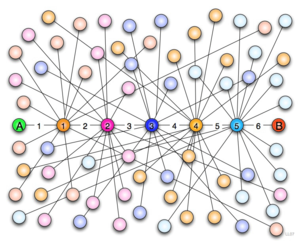When you’re writing a dissertation, it’s likely that you’ll feel isolated. Many dissertators say how much they long to be back at the university where they could talk with their peers about their ideas and their writing.
Too often the isolated dissertation writer feels less than excited about the writing. And productivity suffers.
Talking with others helps you to bounce back when you’re feeling down. But sometimes you think that only others who are in the same situation can empathize with you.
You may avoid the people with whom you could have contact because you think they wouldn’t want to talk about your writing. You may be right. But you may have other things in common.
- Someone with whom you enjoy sharing lunch or talking to about the kids or the football game or the 3K race coming up Sunday
- Someone with whom you can compare prices and benefits of one gym over another
- Someone to whom you can reveal your less-than-complete knowledge or understanding of a product or the way your car works
Positive Psychology researchers contend that one of the most important ways to improve one’s job satisfaction is by having a friend at work. Similarly, when you’re struggling with a dissertation, having a friend to chat with can give you a boost and improve the way you look at your job as a writer.
Having a friend helps to bring out the best in you. If you feel that someone recognizes your worth as a person and also shares some of your values, you will probably feel more confident in exercising your strengths and talents.
The more you can use your strengths, the more likely it is that you will feel more resilient about your writing. And resilience brings greater productivity.
When you’re feeling alone or perhaps that the world is against you, look around for a friend. Aristotle said, “The antidote for 50 enemies is one friend.”
I’m curious whether you think it would be worth your time to cultivate a friend. I’d love to hear what you think.
Nancy
Nancy Whichard, Ph.D., PCC
Your International Dissertation Coach and Academic Career Coach
www.smarttipsforwriters.com
http://www.dissertationbootcamp.net
http://www.nancywhichard.com
nancy @ nancywhichard.com
